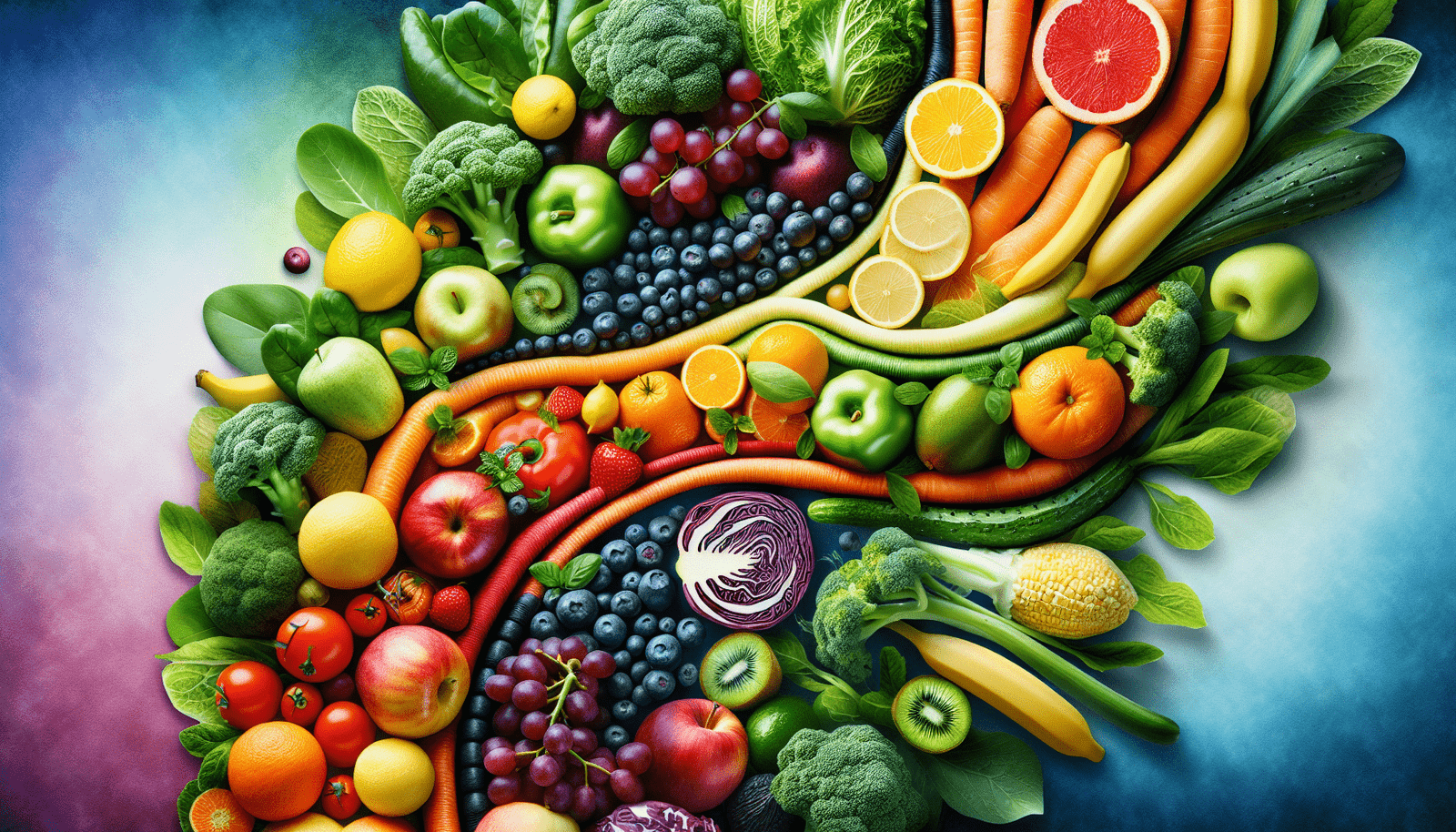Welcome to a guide on overcoming common nutritional hurdles! In this article, you will learn about practical tips and strategies to navigate common obstacles that may arise in maintaining a balanced and healthy diet. From busy schedules to picky eaters, we’ve got you covered with helpful advice to ensure you stay on track with your nutritional goals. Let’s tackle these challenges together and pave the way towards a healthier lifestyle! Have you ever found yourself struggling to maintain a healthy diet due to common nutritional hurdles? You are not alone! Many people face challenges when it comes to making informed choices about their food intake. But fear not, because in this article, we will discuss some of the most common nutritional hurdles and provide you with practical tips and solutions to overcome them. Let’s dive in!

Understanding Macronutrients and Micronutrients
Navigating the world of nutrition can be overwhelming, especially when it comes to understanding the difference between macronutrients and micronutrients. Macronutrients, which include carbohydrates, proteins, and fats, are essential for providing the body with energy and building blocks for growth and repair. On the other hand, micronutrients, such as vitamins and minerals, play a crucial role in various physiological functions within the body.
When planning your meals, it’s essential to ensure that you are getting an adequate balance of macronutrients and micronutrients. This can be achieved by including a variety of foods from different food groups in your diet. Remember, each macronutrient and micronutrient serves a unique purpose in supporting your overall health and well-being.
Balancing Calories Intake and Expenditure
One of the key challenges many people face is balancing their caloric intake with their energy expenditure. Consuming more calories than your body needs can lead to weight gain, while not consuming enough calories can result in nutrient deficiencies and low energy levels.
To overcome this nutritional hurdle, it’s important to track your daily caloric intake and expenditure. You can use a food diary or a calorie tracking app to monitor what you eat and how much physical activity you engage in. This will help you make informed decisions about portion sizes and food choices to maintain a healthy balance between calories intake and expenditure.

Making Informed Food Choices
With so many food options available, it can be challenging to make informed choices about what to eat. Food labels can be confusing, and marketing tactics can often mislead consumers about the nutritional value of products.
To overcome this hurdle, it’s essential to educate yourself about reading food labels and understanding the ingredients list. Look for whole, minimally processed foods that are rich in nutrients and avoid products high in added sugars, unhealthy fats, and artificial ingredients. Remember, the best food choices are those that nourish your body and support your overall health.
Incorporating Variety in Your Diet
Eating the same foods day in and day out can lead to nutrient deficiencies and boredom with your meals. Many people struggle with incorporating variety in their diet, which can result in missing out on essential nutrients from different food sources.
To overcome this hurdle, try to include a wide range of foods in your diet from each food group. Experiment with different fruits, vegetables, whole grains, lean proteins, and healthy fats to ensure you are getting a diverse array of nutrients. Eating a rainbow of colors is a simple way to ensure you are getting a variety of vitamins and minerals in your diet.
Overcoming Emotional Eating
Emotional eating is a common nutritional hurdle that many people face, especially during times of stress or boredom. Turning to food for comfort can lead to overeating and unhealthy eating habits, which can negatively impact your physical and emotional well-being.
To overcome emotional eating, it’s important to develop alternative coping mechanisms for dealing with emotions. Practice mindfulness, engage in physical activity, or seek support from a therapist or counselor to address the underlying issues that may be triggering emotional eating. Remember, food is not a solution to emotional problems, and finding healthier ways to cope is essential for a balanced and sustainable approach to nutrition.
Meal Planning and Preparation
One of the biggest obstacles to maintaining a healthy diet is the lack of time and motivation for meal planning and preparation. Busy schedules and convenience foods can make it challenging to prioritize cooking nutritious meals at home.
To overcome this hurdle, try setting aside time each week for meal planning and preparation. Create a grocery list, batch cook meals in advance, and use meal prep containers to make healthy eating more convenient and accessible. Planning ahead can save you time and money, while also ensuring that you have nutritious meals readily available throughout the week.
Budgeting for Healthy Eating
Another common nutritional hurdle is the misconception that eating healthy is expensive. While it’s true that some healthy foods may be pricier than their processed counterparts, there are plenty of budget-friendly options available that can still provide you with essential nutrients.
To overcome this hurdle, focus on purchasing seasonal produce, buying in bulk, and choosing store-brand products over name brands to save money on groceries. You can also shop at local farmers’ markets or consider growing your fruits and vegetables to reduce costs. With a little creativity and planning, eating healthy on a budget is not only possible but also rewarding.
Overcoming Dietary Restrictions and Preferences
If you have dietary restrictions or preferences, such as food allergies, intolerances, or ethical considerations, you may find it challenging to navigate the world of nutrition. Restricting certain foods or food groups can make it difficult to meet your nutrient requirements and maintain a balanced diet.
To overcome this hurdle, work with a registered dietitian or nutritionist who can help you develop a personalized meal plan that meets your dietary needs and preferences. Experiment with different recipes and explore alternative food options to find substitutes that align with your restrictions and preferences. Remember, with a little creativity and flexibility, you can still enjoy delicious and nutritious meals that cater to your specific dietary requirements.
In conclusion, overcoming common nutritional hurdles requires a combination of education, planning, and mindset shifts. By understanding the basics of nutrition, making informed food choices, incorporating variety in your diet, and addressing emotional eating habits, you can overcome these challenges and embark on a journey towards better health and well-being. Remember, small changes can lead to significant results, so take it one step at a time and be kind to yourself throughout the process. Here’s to a healthier, happier you!

